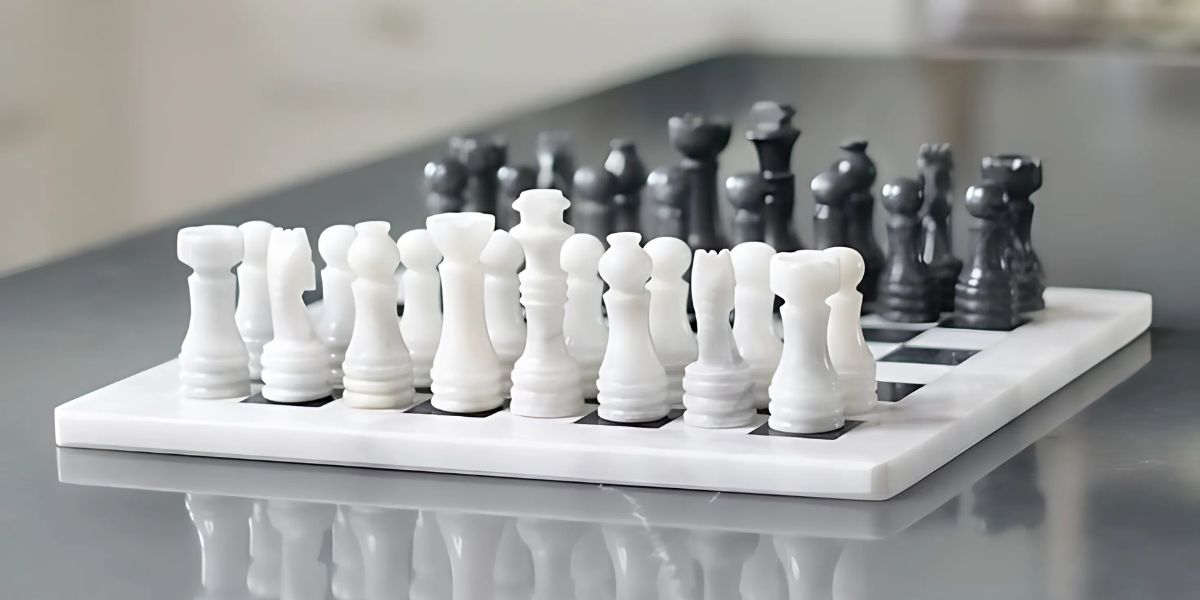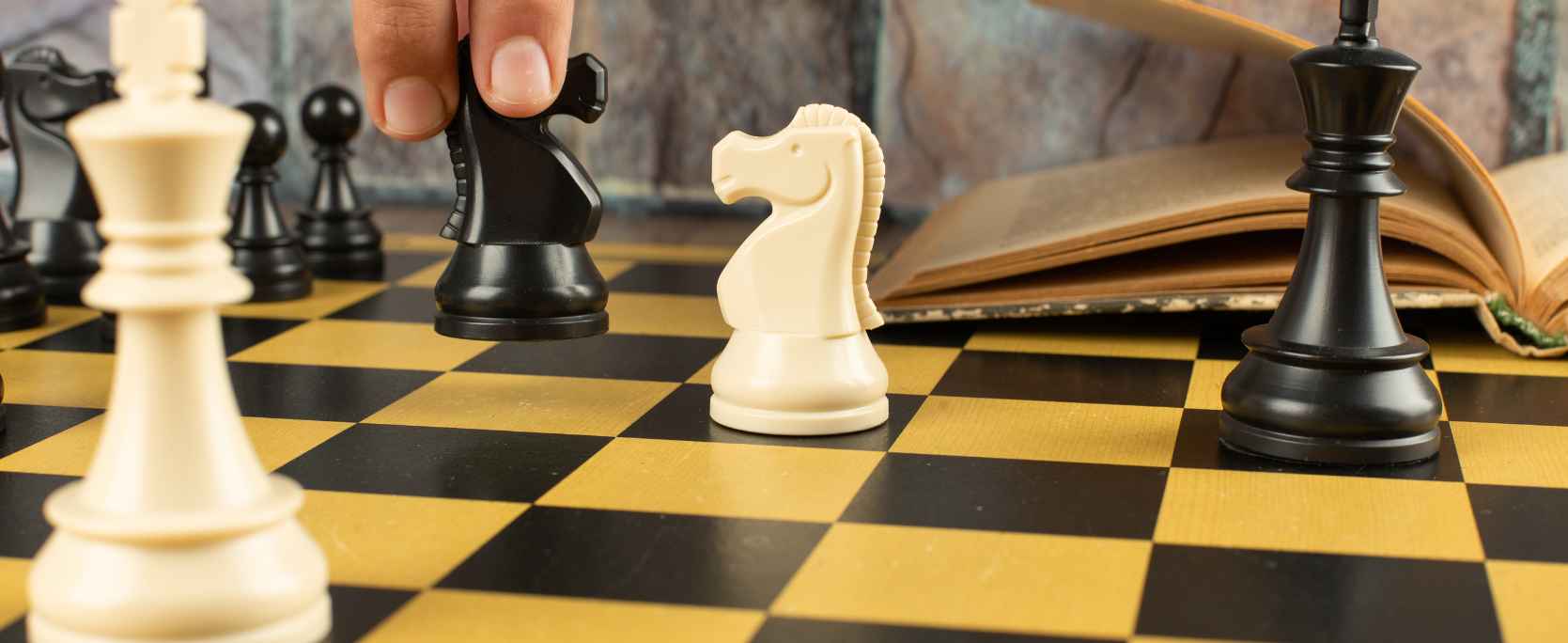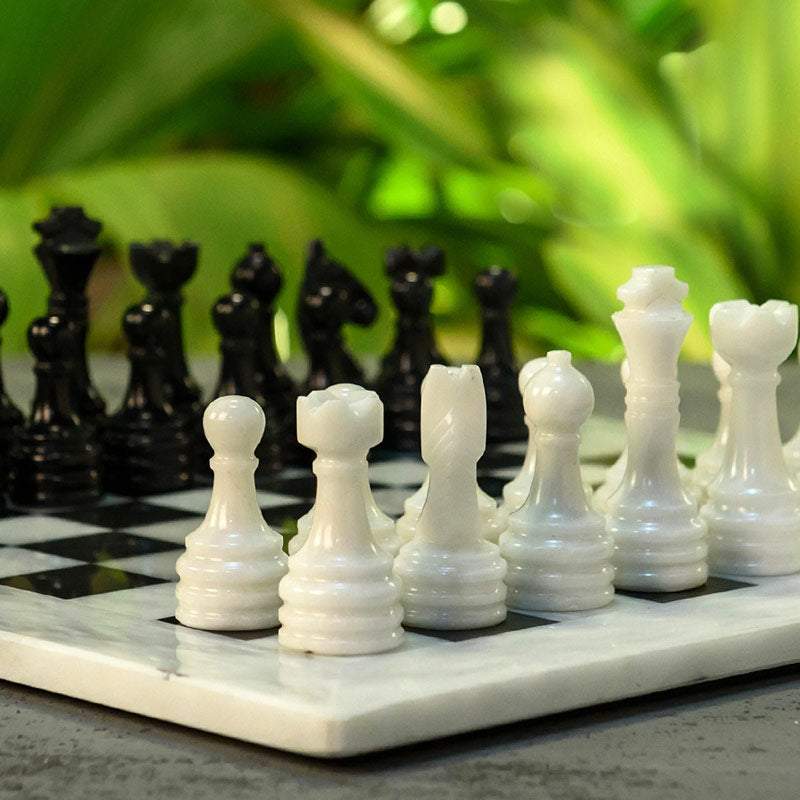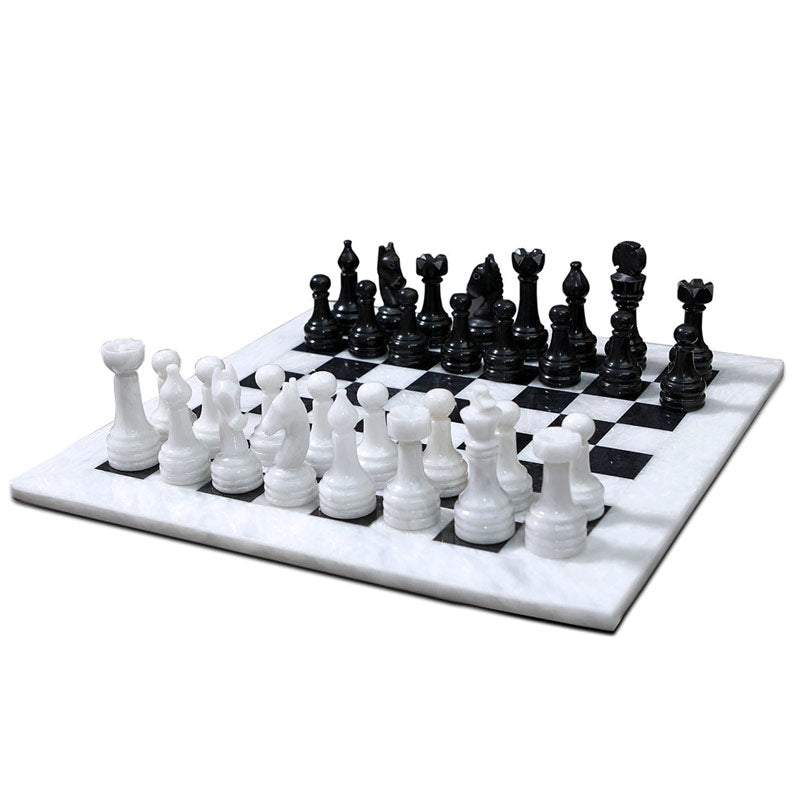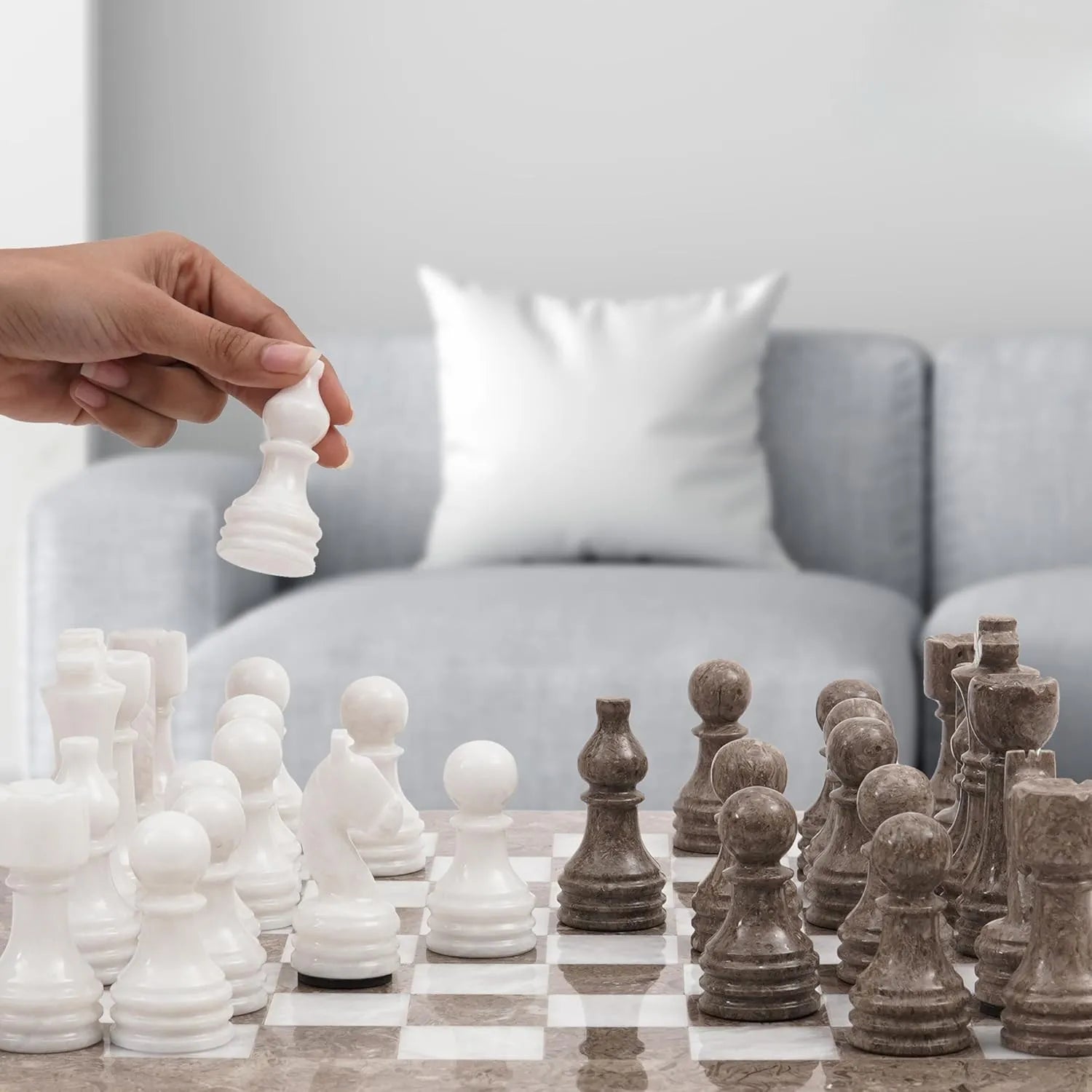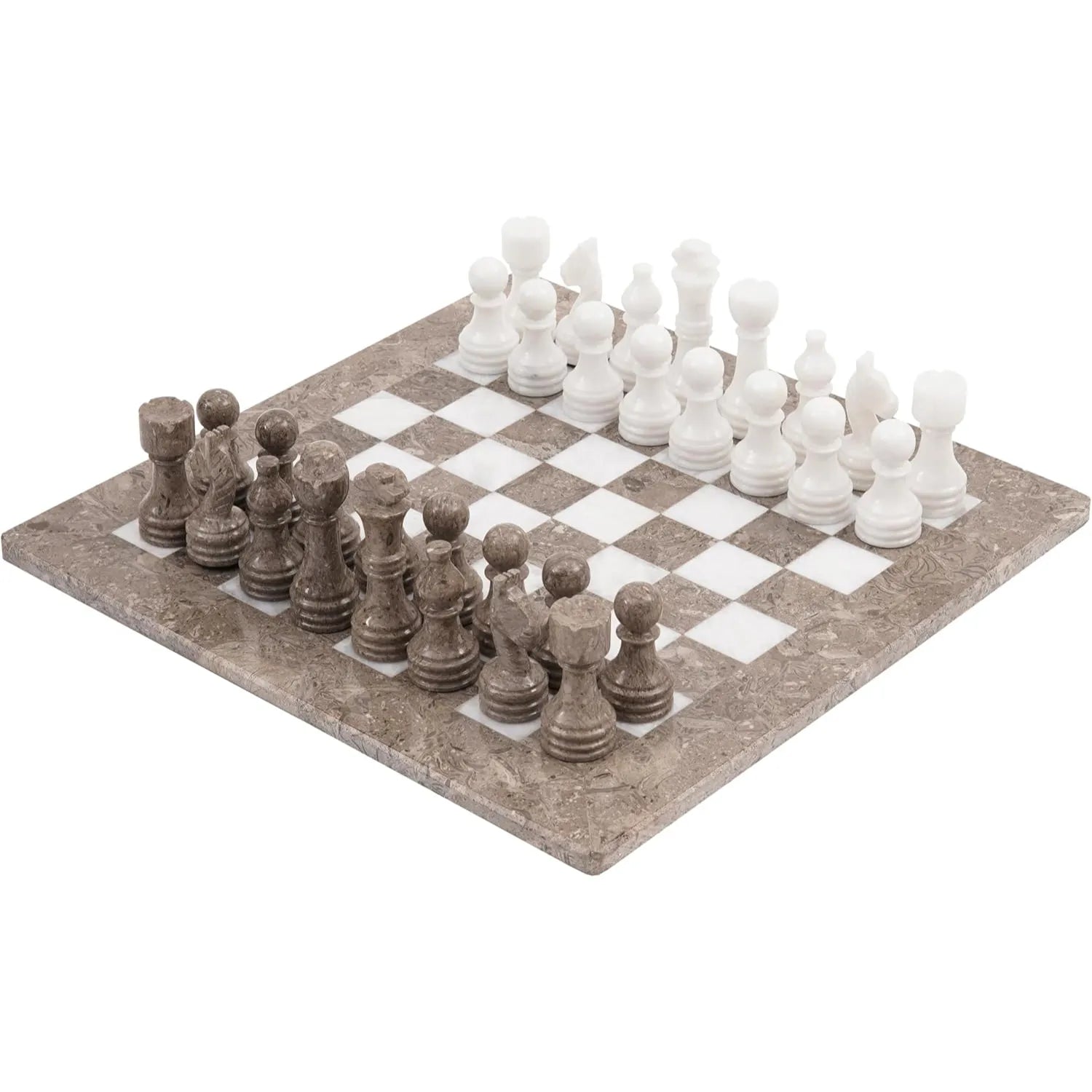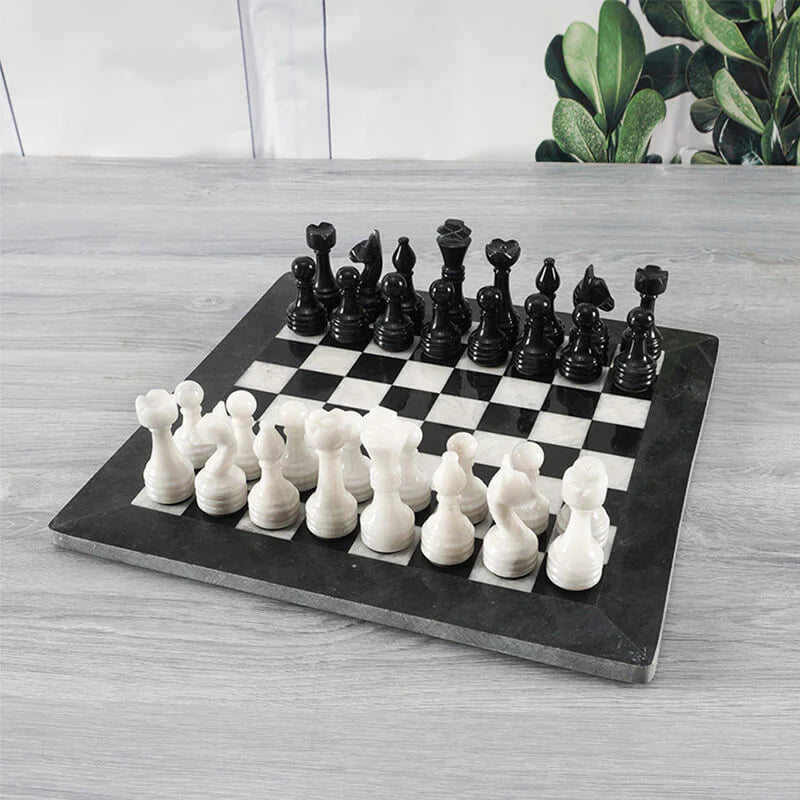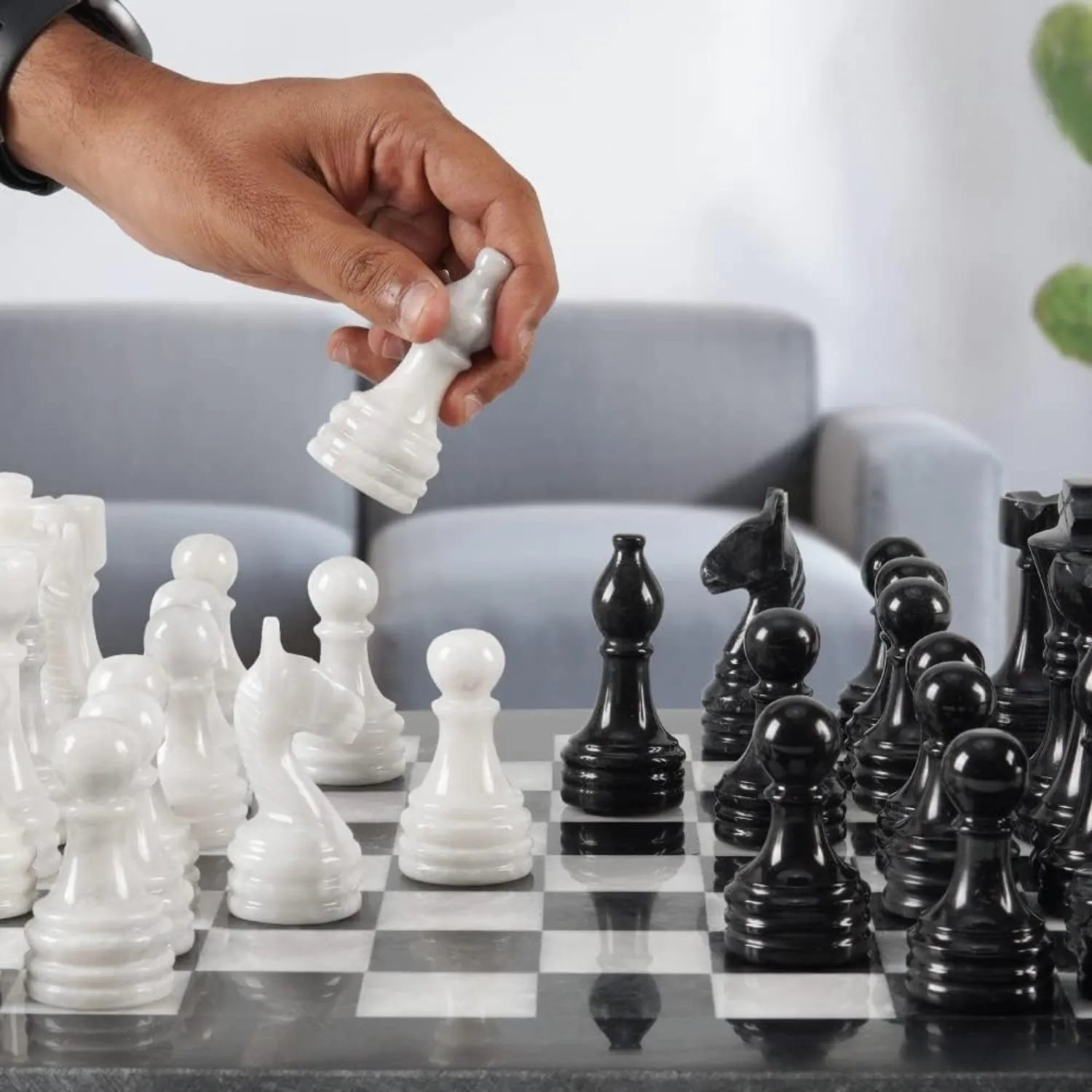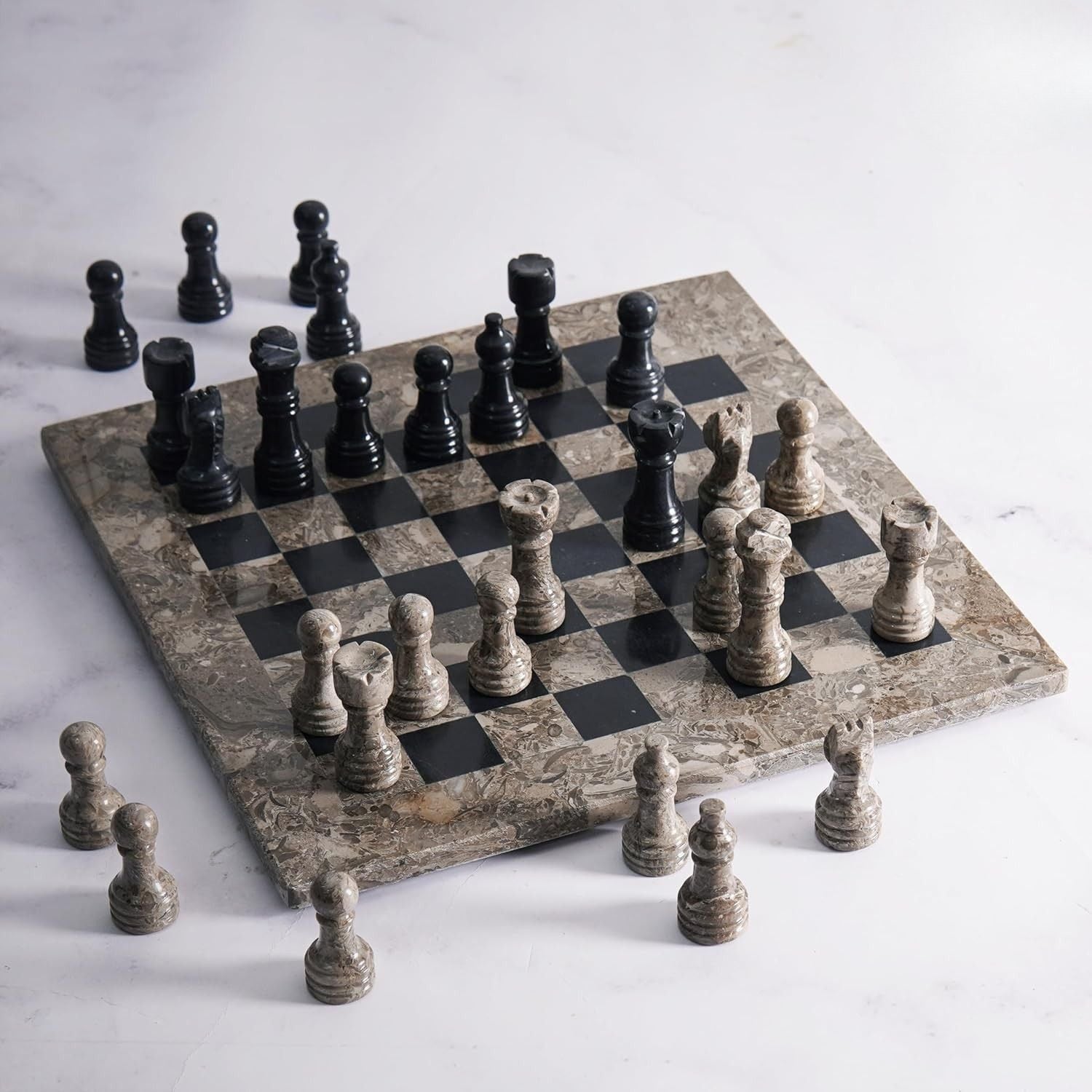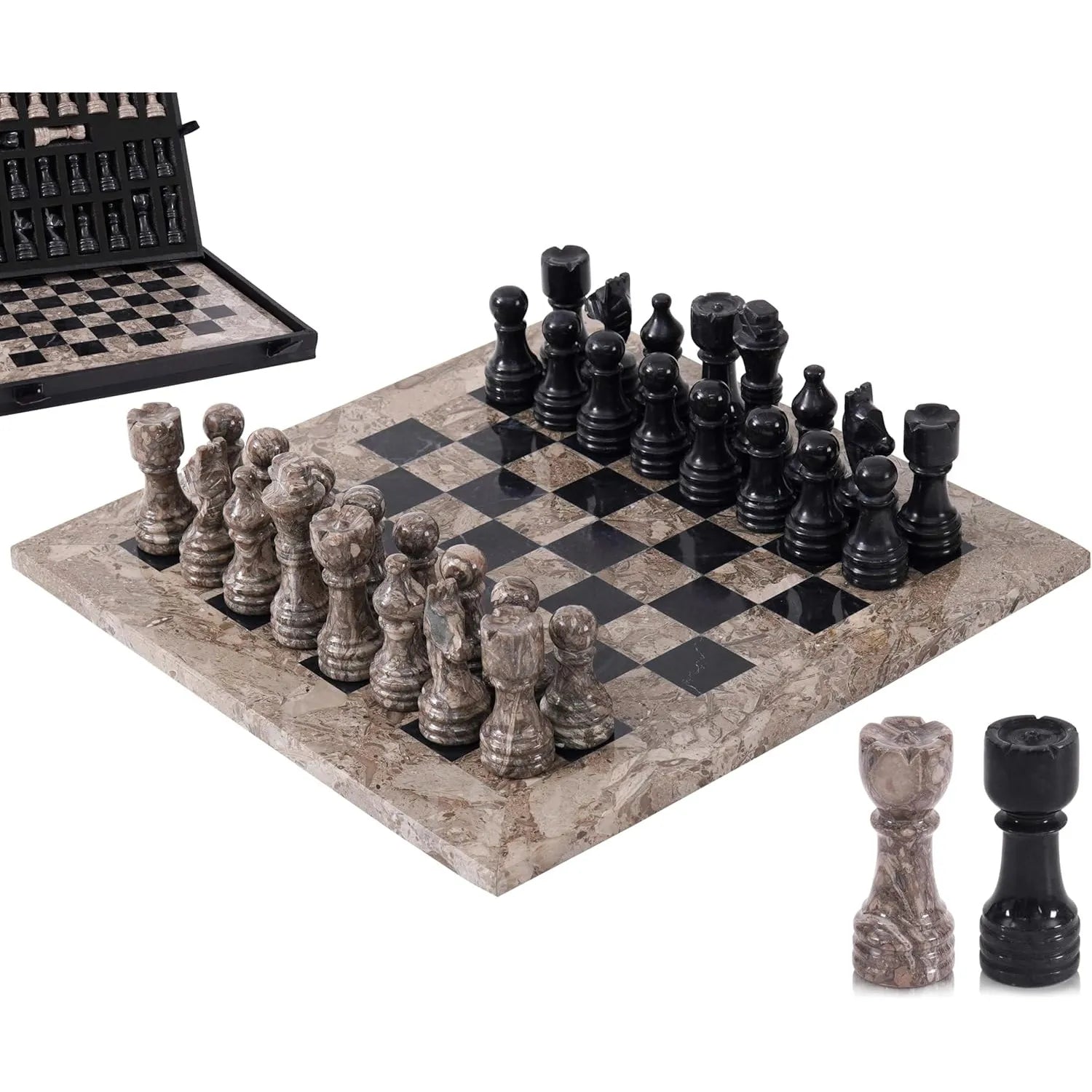Benefits Of Playing Chess
Chess is a strategic game that people have played for centuries. It originated in India during the Gupta Empire and later spread to Persia, where it was known as shatranj. From there, it made its way to the Arab world, Europe, and eventually the rest of the world. Millions of people of different ages and backgrounds play chess. It is a game that not only provides entertainment but also has numerous benefits. That's why we at Royal Bishop encourage people to participate in chess. If you want good, luxurious chess sets, you can check out our latest marble chess sets on our website.
Here we explore the various benefits of chess and why it is a game worth playing.

One of the most significant benefits of chess is that it improves cognitive abilities. Studies have shown that playing chess can improve memory, concentration, and problem-solving skills. It has also been linked to better spatial reasoning and increased creativity.
This is because playing chess requires a lot of mental effort. Players must constantly analyze the board, plan their moves, and anticipate their opponent's moves. This mental exercise is excellent for keeping the brain active and improving cognitive abilities.

Chess is a game that requires strategic thinking. Players have to plan several steps and anticipate their opponent's moves. This strategic thinking is helpful in chess and many other life areas.
In business, for example, strategic thinking is critical for success. Business owners must constantly analyze the market, plan their moves, and anticipate competitors' moves. Similarly, strategic thinking can help people make better decisions and achieve their goals more effectively.

Chess is a game that requires a lot of patience and perseverance. A single game of chess can last for several hours, and players have to stay focused and attentive throughout the entire game. They also have to be patient when their opponent takes a long time to make a move.
This kind of patience and perseverance is essential in many areas of life. Patience and perseverance are crucial to success in school, work, or personal relationships. Playing chess can develop these qualities and make them a part of everyday life.

Chess is a game that requires a lot of mental effort and skill. Winning a chess game can be a great confidence booster, especially for young players. It can also help players develop a healthy competitive spirit and a desire to succeed.
In addition, playing chess can help players learn to cope with failure. Losing a game of chess can be frustrating, but it can also be a valuable learning experience. Players can analyze their mistakes and learn from them, which can help them improve their game and build resilience.

Chess is a game that can be played alone or with others. When played with others, it can promote socialization and build relationships. It can be a great way to meet new people and make friends.
In addition, chess tournaments and clubs are great opportunities for players to connect with others who share their passion for the game. They can exchange strategies, analyze plays, and learn from each other's experiences.

Finally, chess is simply a great source of entertainment. It is a challenging and exciting game that can provide hours of fun and mental stimulation. It can be played in person or online, and many resources are available for learning and improving one's game.

Chess has been shown to benefit cognitive health, including potentially helping protect against dementia. This is because playing chess requires a lot of mental effort and strategy, which can help to keep the brain active and engaged. Studies have found that playing chess can help improve memory, attention, and other cognitive abilities, which are important for maintaining brain health as we age.

Chess is a game that requires players to be aware of their thought processes and decision-making strategies. To improve at the game, players need to analyze their moves and anticipate their opponent's moves while also being mindful of their mental state and emotional reactions. This kind of self-awareness can translate into other areas of life, helping players become more reflective, introspective, and aware of their strengths and weaknesses.
Conclusion:
Chess is a game that's been played for centuries, and for a good reason. It provides numerous benefits, from improving cognitive abilities and strategic thinking to developing patience and perseverance. It can also build confidence, promote socialization, and provide hours of entertainment.
Chess helps players elevate in life. It increases the person’s ability to exercise divergent and creative thinking on the spot. Players can learn from the consequences of their actions and learn from the mistakes they made.
FAQS:
Q1: How can playing chess benefit you?
A: It can help you improve your decision-making skills and also help you be patient.
Q2: Can chess improve brain function?
A: Playing chess challenges your brain to exercise logic and develop a pattern and decision-making skills. Chess is like an exercise for your brain.
Q3: Does chess help you in maths?
A: Studies have shown that kids who play chess scored relatively higher on their test scores than the ones who don’t play.
Q4: Does chess calm the mind?
A: Research has proven that chess does help to reduce stress and anxiety.
Q5: What parts of the brain are used in playing chess?
A: The frontal lobe and PFC part of the brain are used in problem-solving and are also used in playing chess.





